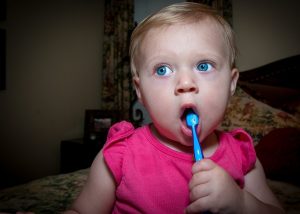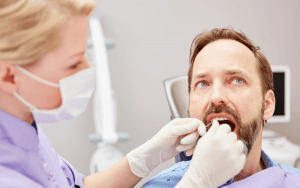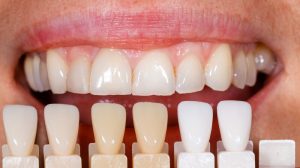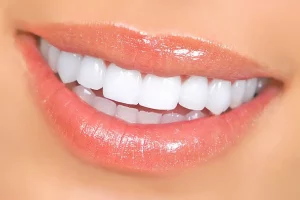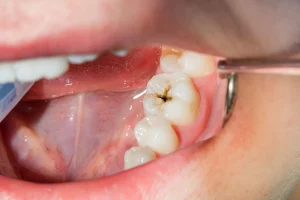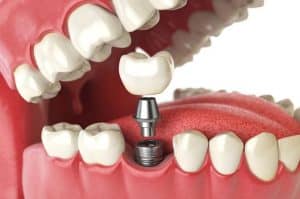Being new at parenting is hard in every aspect. But it is crucial to know some things about your baby and one of them is your baby’s first tooth! Because teeth are required for speaking, smiling, and chewing, they are crucial to a baby’s health. The functions of the teeth have a significant influence on the health of the kid.
In the jawbone, where permanent teeth are forming and will eventually erupt once temporary teeth fall out, the baby’s teeth are taking up space. When temporary teeth fall out too soon, the permanent teeth that are still under them may move into the vacant area and alter the amount of space that can accommodate all of the teeth, perhaps causing crowding or crooked teeth.
You might not know everything about your newborn, but don’t worry. We have made a list of 5 things one should know about their baby’s first tooth eruption. Let’s take a look at 5 facts you should know about your baby’s first tooth!
Most Babies Will Develop Teeth Between 6 and 12 Months
If you wonder when a baby’s first tooth comes in, the emergence of a first tooth can happen at any time. At three months old, babies begin exploring their surroundings with their mouths, right before the baby’s first tooth. They also start to put their hands in their mouths and have increased salivation. Many parents wonder if their child is teething, although a first tooth typically develops around 6 months of age.
At Six Months, Fluoride Should Be Introduced to Your Child’s Diet
Fluoride consumption is crucial after a baby’s first tooth. Fluoride is a mineral that strengthens the enamel of teeth to help prevent tooth decay. When your baby starts eating solid meals, give them a few ounces of water in a sippy or straw cup (about 6 months of age). Consult your kid’s physician to determine whether fluoride supplements are necessary or if your youngster needs to drink fluoridated water. Most bottled water doesn’t normally include fluoride.
Teething Difficulties
Baby’s first tooth may come with teething difficulties. When teething, babies can exhibit nasty moods. Babies who are cutting their first teeth have aching gums and a strong want to bite onto something to relieve the agony. The gums around the place where teeth are erupting may feel slightly uncomfortable from teething, and they may appear swollen. Babies may drool a little bit more than usual. You can ease the discomfort in the gums in a few different ways. A firm, spotless plastic ring between the gums aids in soothing the discomfort. Pain can also be reduced by massaging the gums with clean, dry, or chilled fingertips or washcloths.
Do not consume teething cookies. If a baby gulps a significant portion of a biscuit while chewing on it, the biscuits become mushy from saliva and pose a choking hazard. Many teething cookies include salt or sugar, which is unhealthy for a baby of that size. Parents frequently notice that teething babies have a little temperature. If the temperature is greater than 100 F, an infection or disease may be to blame.
If you notice that the infant is really uneasy and irritable, you need to consult your family doctor or pediatrician. Depending on the baby’s age, the doctor may prescribe acetaminophen or ibuprofen. In accordance with the baby’s age and weight, it is advised to administer the proper amount in milliliters. However, for some kids, the teething process goes easily and without incident.
Also, another thing to consider after symptoms of a baby’s first tooth is avoiding teething pills. Avoid benzocaine-containing gels and teething pills that include the plant toxin belladonna. Although benzocaine and belladonna are advertised as painkillers for kids, the FDA has issued warnings against both owing to possible negative effects.
Amber teething necklaces are also not suggested. Necklaces worn around an infant’s neck might be dangerous, increasing their risk of choking or strangling. Additionally, there is no evidence to demonstrate the usefulness of the necklace.
When The First Tooth Shows, Schedule Your First Dental Visit
When your baby’s first tooth erupts and before his or her first birthday, try to schedule the child’s first dental appointment.
By the age of one, it is advised that all kids visit a pediatric dentist and choose a “dental home.” A pediatric dentist will ensure that no dental issues exist and that all teeth are developing appropriately. They will also provide you with further guidance on good hygiene. Locate a general dentist who is at ease treating small children if your neighborhood lacks a pediatric dentist.
Examining with the Mouth
Children engage in exploration and spoken exploration of their surroundings. Parents link a baby’s propensity to stuff everything and everything into their mouth with the eruption of the baby’s first tooth. These are two distinct objects. Babies utilize their mouths, which are their most developed organs, to investigate their surroundings.
Some infants are born with what is known as a natal tooth, which eventually needs to be removed since it might obstruct breastfeeding or bottle feeding as well as the growth of deciduous or temporary teeth. Some discomfort may be experienced when the baby’s first tooth erupts or may need to bite onto something to force their upper and lower jaws together.
You can read our previous article from https://smileteamturkey.com/blog/5-reasons-for-dental-checkup/.
